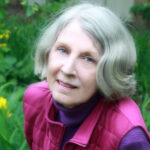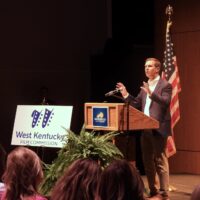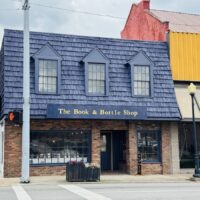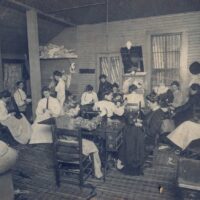My passion for poetry started with nursery rhymes my mother recited to me before I could read. “Humpty Dumpty,” “Peter Piper,” and “Old Mother Hubbard” were already committed to memory before I went to school.
And then at 5, I got my own library card. The very first book I checked out was a collection of children’s poetry. The title is long forgotten, but the bright orange cover was decked out with a splendid red and gold rooster, so animated you could almost hear him cock-a-doodle-doo.
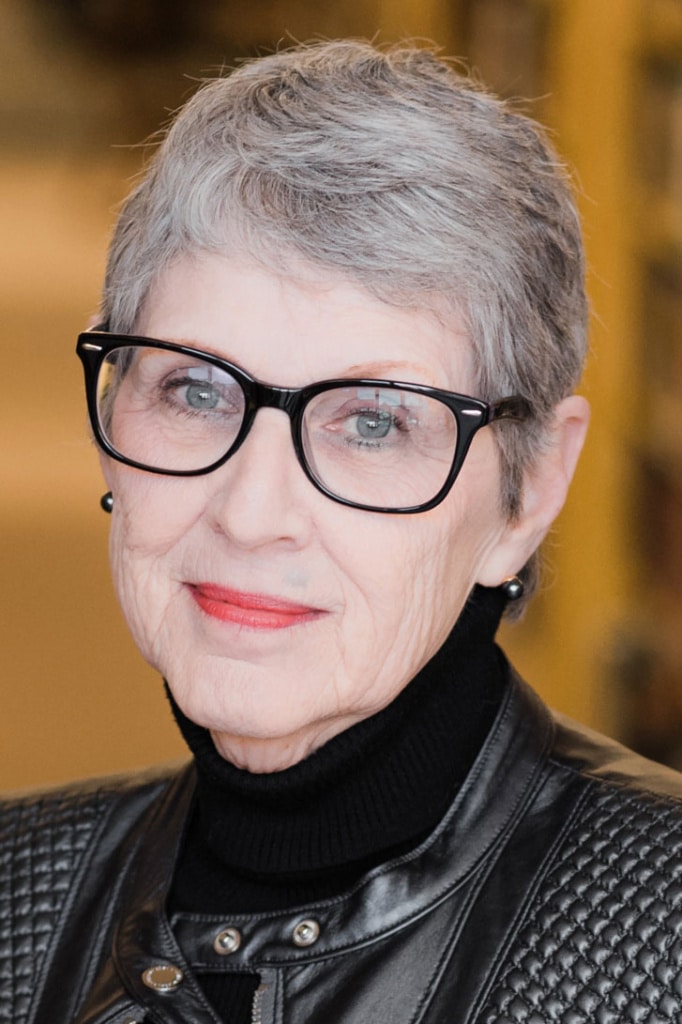
Story hours with the children’s librarian, Mrs. Coppage, added fuel to my fire. She read — and acted out — poems. I’ll never forget her rendition of “Little Orphan Annie” by James Whitcomb Riley. When she leaped from her chair and raised her arms like a symphony conductor, her Gibson Girl top-knot unraveled; her long silver hair cascaded to her shoulders. The pristine white blouse with leg-o-mutton sleeves unhitched from the waistband of her skirt as she prompted us to join the chorus and shout, “The goblins’ll getcha if you don’t watch out!”
She introduced us to “Casey at the Bat,” “The Owl and the Pussycat” and “Now We Are Six.” When she added Dr. Seuss to the mix, I discovered rhymes and rhythms a girl could tap dance to while reciting her favorites.
St. Francis School, my elementary alma mater, encouraged poetry, but not the fun kind. In fourth grade, Sister Johannes made us memorize Somebody’s Mother, a cautionary tale about rowdy lads nearly toppling an old woman trying to cross the street. One little gentleman remembers his manners and ferries the woman across the thoroughfare after he admonishes his peers:
She’s somebody’s mother, boys, you know,
For all she’s aged and poor and slow…
My passion survived grade four because I won a poetry contest with eight lines of my own making. I remember the day Sister told us about the diocese-wide competition. Walking home from school, I fretted about what I could write. I sat at my desk for hours and went to bed with nothing. In the morning, the first lines showed up like that angel in the “Annunciation:”
Dear Jesus in your tabernacle home
Do you ever feel alone?
After that, it was easy to come up with the rest. I even used the word “neglected,” which I’d learned from my mother, who often gently reminded one of us kids that we had “neglected” to do our chores. I was so pleased with myself when I finished, I felt as if I had not written the poem; it had composed itself.
My creative process further inspired by our fifth-grade teacher, Sister Margo, who introduced us to old-fashioned standards like “The Courtship of Miles Standish,” “Evangeline,” “Wreck of the Hesperus,” and — be still my heart! — “The Highwayman.”
In high school, Miss Haitsch guided my love affair with Yeats, Keats, and Shakespeare. In college I switched majors from Music to English because I could not get enough Ferlinghetti, Sexton, or Plath. Graduate school did not deter me. Even while working on an MBA, I wrote a sonnet for my international business course about the impact of climate on the economy of Canada. The professor gave me an A.
As an adult, I have continued writing poetry and plays in poetic form, most recently a spoken word opera, “The Way Home.”
No surprise that I was thrilled when the Academy of American Poets designated April as National Poetry Month in 1996 to remind the public that poetry matters, and that poets play an integral role in our culture.
Over the years, it has become the largest literary celebration in the world, with tens of millions readers, students, K–12 teachers, librarians, booksellers, literary events curators, publishers, families, and, of course, poets, marking poetry’s important place in our lives.
WKMS-FM joined the celebration in 2006 by launching “Poetry Minutes.” Since then, every weekday in April, the National Public Radio affiliate broadcasts original short poems written and recorded by listeners. The tradition continues in 2022, with writers asked to explore the theme chosen by the Academy: “There’s a poem in this place.”
For those interested in writing and submitting a short poem — less than 50 words — think about this splendid advice from one of the poets whose work will be broadcast as a poetry minute, Katerina Stoykova, of Lexington.
How to write a poem
Catch the air
around the butterfly.
Stoykova is founder of Accents Publishing and editor of Bigger Than They Appear: An Anthology of Very Short Poems.
“Poetry Minutes” are broadcast on WKMS-FM in Murray at 8:43 a.m., during the noon hour, and at 3:48 p.m.
Constance Alexander is a columnist, award-winning poet and playwright, and President of INTEXCommunications in Murray. She is a board member for Hoptown Chronicle.
